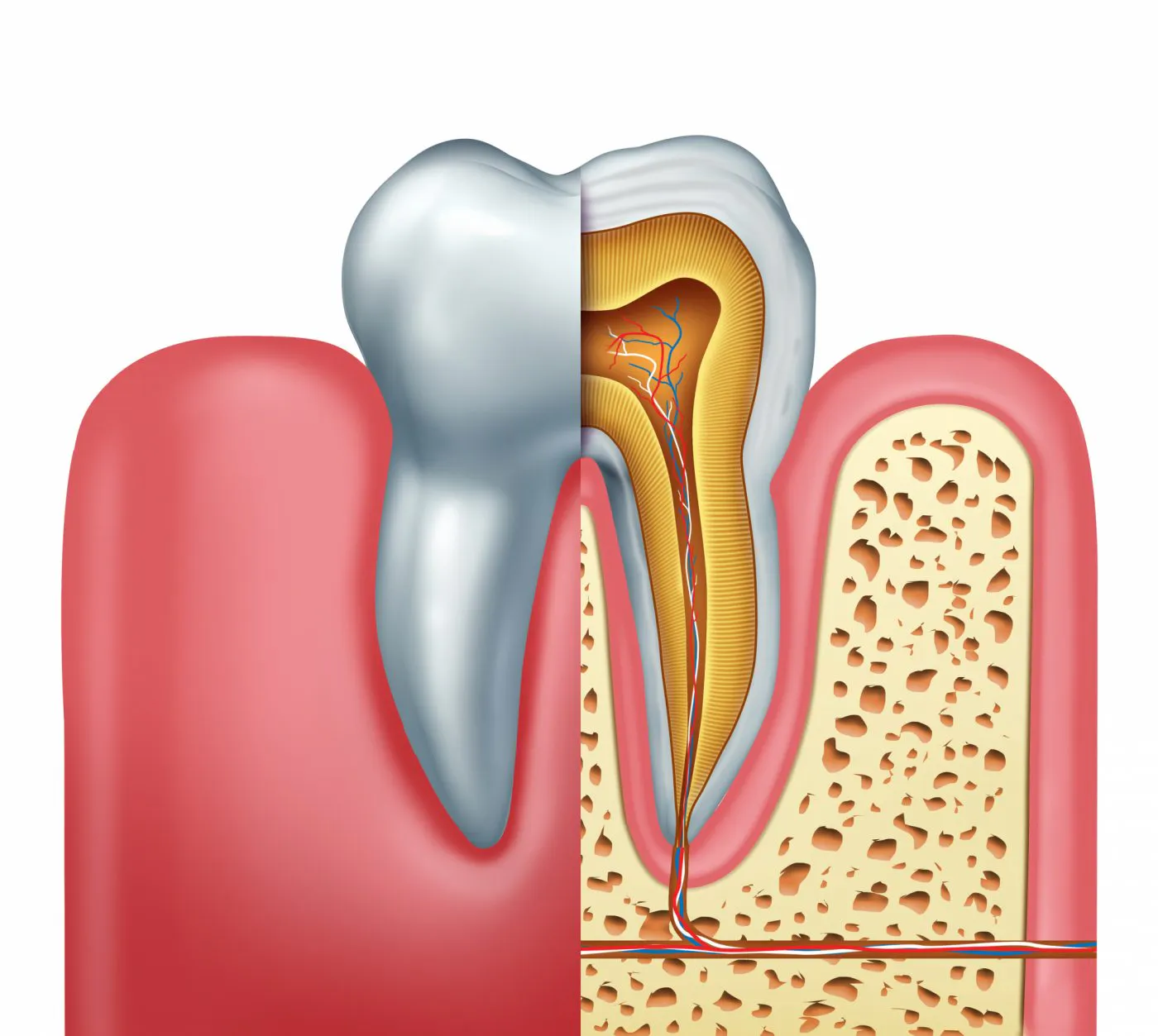Five signs of infection:
1. Serious toothache when eating, or when you put pressure on the tooth. Does it hurt when you bite down hard?
2. Excessively sensitive teeth. Does the sensitive pain linger after the initial contact with hot or cold foods or drinks?
3. Darkening of your tooth. Has your tooth changed colour? This may be a sign of the nerve dying.
4. A small bump on the gum, close to the painful tooth.
5. Tender or swollen gums around the tooth.
Why is it called a root canal?
The visible part of your tooth, above the gum line is called the ‘crown’. Below the gum, fixing the tooth to the jaw, is the ‘root’ of your tooth. The root canal system is a network that fills a central hollow area inside the tooth and down to the roots. Root canals are filled with loose connective tissue called ‘dental pulp’ and they are responsible for nourishing and hydrating the tooth, as well as reacting to hot and and cold.
When an infection takes hold, it is this pulp which becomes inflamed, which is why it may be painful to eat or drink. Eventually a bacterial infection will cause the pulp to die. It is important to see your dentist if you are experiencing toothache, as the infection will not go away of its own accord and antibiotics cannot be used to treat a root canal infection.
If left untreated, a deep infection can spread through the whole root canal system of your tooth. In this case, the pain may subside, as the infection will have removed all of the pulp.






